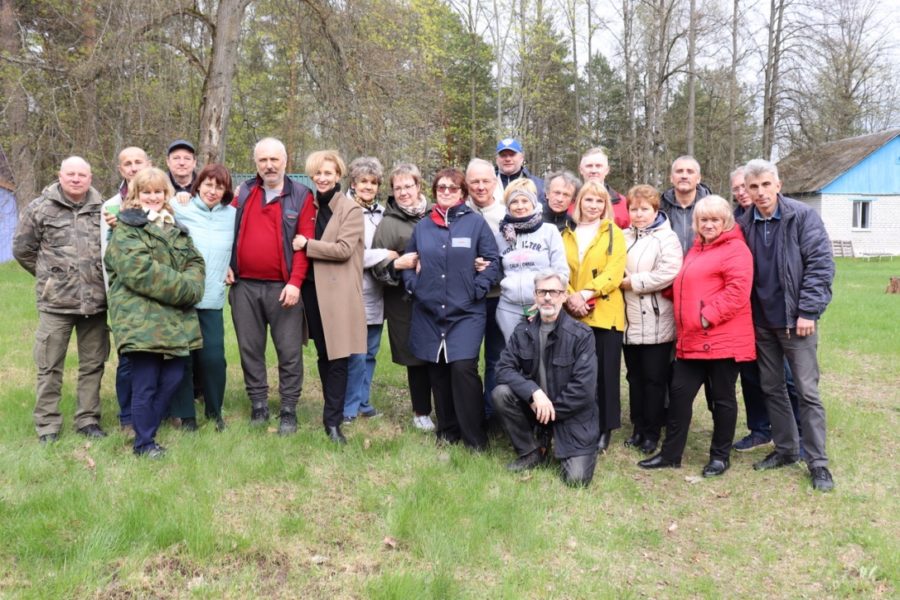This post is to share my impressions from meeting with my school friends in May as well as thoughts shaped by the online Group Relations Conference in June (led by the Tavistok institute). My vision and hearing do get willingly muffled at times, to avoid too intense a contact with the surronding world, which I often find a bit poisoning. In happy moments, feelings get switched back on. It gives me pleasure to remember such moments and re-live them through writing about them.
May 2021
This year, warm summer weather came quite late preceded by a long-lasting spring cold. Russian Orthodox Easter fell on the 2nd of May. New hope and joy for believers, traditional cakes for all.
Victory Day May 9th used to be a very special day in our childhood. Families would get together to remember the hard days of the 1941-1945 war. Everyone here has called it “the great holiday” though the celebration has become quite a private matter. Those were cruel, and shocking days full of sorrow, every family suffering a loss. Grandmas and granddads who witnessed those days and contributed to the victory over fascism are gone now. These days, we remember them in a company of friends, or sharing photographs and stories in social networks. The military parade in Red Square, official speeches and big shows sponsored by the authorities have nothing to do with that.
Away From The Parade
Because of parade rehearsals in Moscow, traffic was blocked in the city centre and some underground exits were closed without prior announcements, same story with variations repeated year after year. Tanks in the city, loud hooray concerts, plastic flags… Away with them all!.. Between Easter and Victory Day I went to Smolensk to see my parents and meet up with school friends.
Invitation: “May 8th, classmates’ shashlik party at a “pioneer camp” in Krasny Bor. Meeting point near a seven-storey office building in Kolkoz Square. The sum of the contribution will be calculated on the spot, so do bring cash with you. Food and soft drinks will be there. If you fancy alcohol, bring your own. If you fancy a fight, it is to be ordered in advance, at a price. As for adults, we will have Angelina Ivanovna with us.” Tim, you wrote this very well (Tim is an author of a couple of books on the history of Smolensk).
This is my second meeting of this sort. The group met more or less regularly, every five years or so. The backbone is “V” class, “veshki”, with Angelina, the class teacher, joined by some others from “A” and “B” (“ashki”, “beshki”). Similar to how it was at school, “veshki” appear a majority and a tight-knit bunch.
Those who have grandchildren, raise your hand
After meeting at Kolkhoz square we drove, four-five in one car, to a former pioneer camp. Nobody here, only our group and a few dilapidated plaster statures of pioneers. A friendly housekeeper greets us. Our classmate Lena has arranged for this, she has a big job with some state department for secondary education.
This spacious one-storey house must be the former camp canteen. Furniture gets moved, vegetables washed, a long table laid. We sit down in two long rows, as if it is an old-fashioned wedding party, or a wake.
Outside, Vassia and Andrey make the fire and grill the kebab. Igor makes his signature plov… We eat, talk and switch places so that we could be next to those with whom we had not yet chatted. Some show pictures of children and grandchildren, some complain they have problem seeing things on a small phone screen. Every hour or so we go out as if to smoke (but no one smokes), come back, sit and chat again. We say nice things to each other.
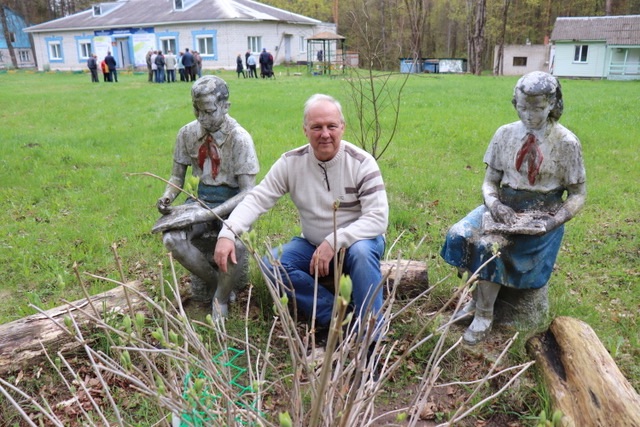
Moments of Love
Andrei says: “Work colleagues ask me – what are you doing there, at those meetings of classmates, drinking vodka? I say to them: you don’t get it folks, we are – talking. There’s a girl – I mean you, Nina – she’s got more freedom in her than the Statue of Liberty. She tells stories, and you feel like you leaf through a picture book.”
Sergei says:”I haven’t seen you for thirty-seven years, Nina, and it turns out you haven’t changed. You’re even as ready to recite a poem at any moment.
Kostya, “Kostya the Dwarf”, singer, artist, poet, rebel, and Sergei, “Petcha”, a maths star, handsome big guy – they are gone forever, bitterly and painfully, through alcoholism and diseases. Vova, he also died, someone say, and we only got to know later and still don’t know the reason. Lyokha, he also died, long ago, two years after school; fainted at a lecture in the university, some vessel in his brain, died unconscious some weeks later.
“Let’s drink to remember the boys,” Kirill says. We do not tap our glasses, a Russian custom of drinking to the dead, and then remain silent for some time.
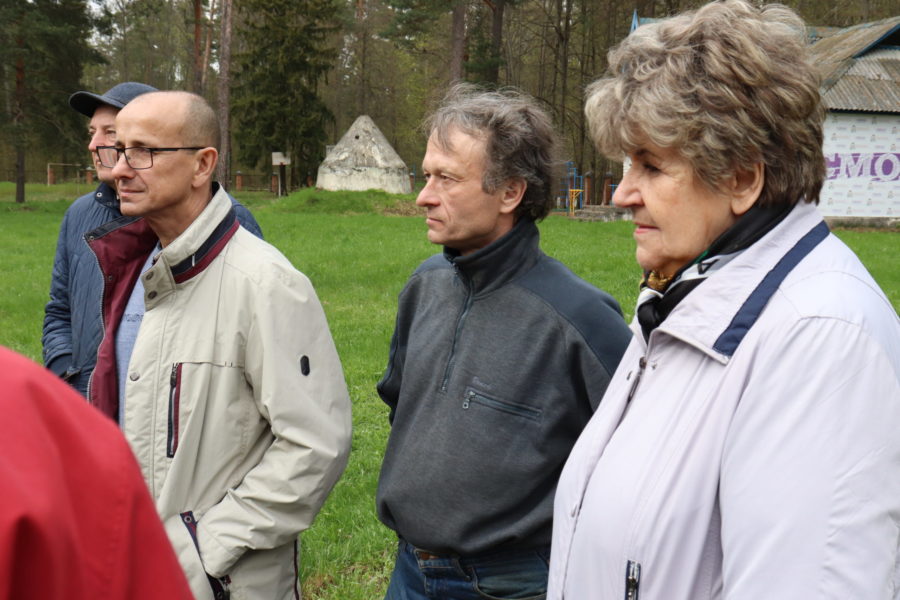
Do you remember…?
“…Vladimir Gerasimovich Nikitin <who taught us Russian Literature> once said, sadly and angrily, “You will never understand this” about Pushkin’s “October 19th”, how nineteenth century noble men, childhood friends, got together every year in their Lyceum. He didn’t believe in us, but we do meet after school, you see. Pity he didn’t live to see this”.
“Tima, I do remember that Nikitin’s attack on you! You guys were reading “What Is To Be Done”, Chernyshevsky’s novel, and you Tima picked at the novel’s title and muttered from your desk : “What is to be done? What is to be done? – Bread is to be dried!” What Nikitin heard was not a joke but an insulting remark about Chernyshevsky, whose writings inspired Russia revolutionary men, and he was furious!.. He made you stay after the lesson and I, your class teacher, was obliged to sort things out. I came and said: “Come on, Timur, what is it? Who cares about you if you behave like this?” And you said, “Who cares? My mom and dad do.” Then added: “And so probably do you, Angelina Ivanovna.”
“…Did you fight, beat up others, was that part of your boys’ school life? – Oh yes, we used to beat up some to teach them a lesson. – Are you saying it was “all on one?” – Exactly. We would meet in a lobby, where the corridor takes a turn towards locker rooms, it’s a sort of a blind spot… – Wait, you would beat someone without explanations? – Actually no, we would always announce a reason for the execution.”
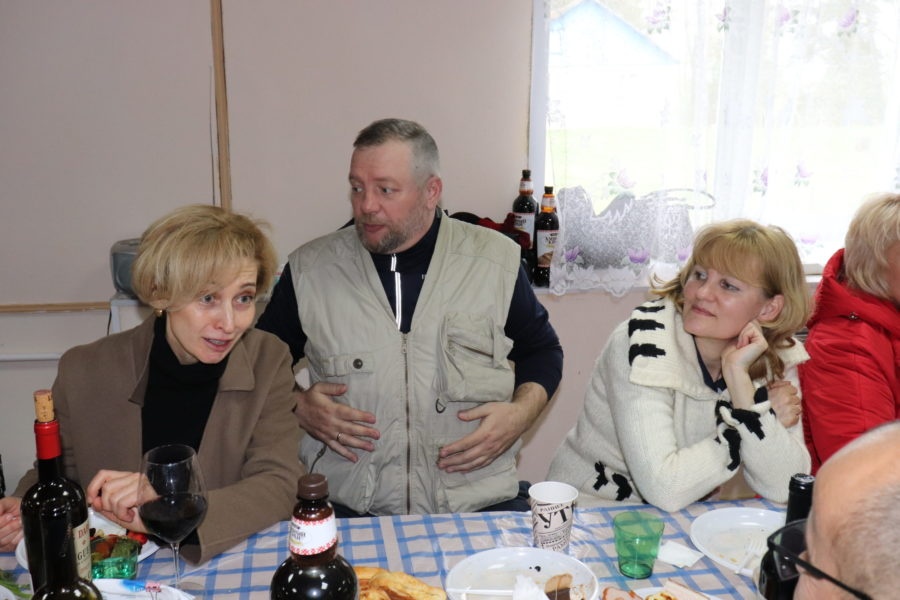
Leaders and Groups
What a striking story I heard on that day, from the times when we were all 13 or 14 years old. I mean, I witnessed the end – in those years I was still in school number 17 and I had friends from school number 26, which my mother used to go to and which later became mine. There came a new teacher of Physics, young, skinny and unpleasant, and there were rumours that she had to leave the next door school because they boycotted her.
It was only at our reunion now, after forty years, that I learned what had really happened. “She became our class teacher”, “V”-class folks told me, “and we had one girl, she was very quiet, came from a single-parent family, and her mother drank. Then one day this girl just disappeared. And then we found out that it was the new teacher who did that: the mother was taken to court and deprived of her parents’ rights, and the girl was sent to an orphanage.
Getting rid of the weak and the unsuccessful, one of the worst examples of how that system worked. The class started to hum during her physics lessons. She could not understand who it was coming from, they all were sitting at their desks with their mouths shut, staring at their books or at her. And then other classes – “A” and “B” – started humming during her lessons, too. Soon after, she left the school.
Teamwork! Group dynamics! The guys said it was Kostya Karmanov, “Kostya The Dwarf”, who came up with the idea. Leadership! There was a film and a book written long ago but we read it when we were teenagers, “A Republic Called SHKID”, about former street kids who then lived and studied in a boarding school named after Dostoyevsky in Saint-Petersburg. There, too, they were driving their teachers mad with their humming at lessons.
Kostya just knew he would be next to go to an orphanage, as soon as that lady collects all the necessary papers. He was also from a so-called dysfunctional family. So he initiated a revolt. Yes, Kostya could. Where are you now, Kostya? How did you get on that way of killing yourself slowly by drinking?
I have been fascinated lately by reading on group relations and unconscious group dynamics. I wonder if I can learn to see things in a new way – about myself, events, how we live and how we live together. For example, I am asking myself: am I mourning talented, sincere, sensitive people who run away from reality into alcohol? Or am I morning the lack of a leader in my own life? A leader who got killed during the red terror? died in the war, perished in a labor camp? Imprisoned for preaching the truth? Lost to drugs? Do I use the lack of a leader as an excuse, not to fully embrace my own life?
Let me give you a hug
Our wonderful, warm temporary group spent seven hours on May 8th having no particular task to accomplish, no work to get done. What is more, we school classmates found ourselves in an ideal, artificial space of the past, in a time capsule!
All of us seemed to have sensed the fragility of life during this past year. We realise that new losses are inevitable and the time is short, and that made us open to deep conversations full of empathy and sincere interest towards each other. Love, a lot of love – this was my take-away.
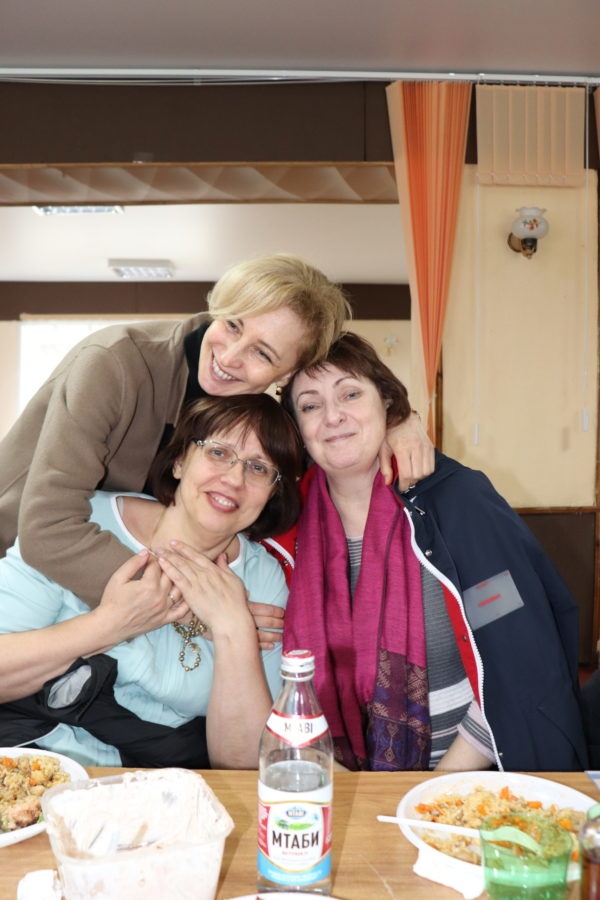
Agenda
In June I attended another online conference on group relations, conducted in Russian this time (“Hidden dynamics in organisations: identity, power and authority in times of online communication”). One of the things I saw was how groups can resort to a false sense of togetherness. In one of the small groups formed at this conference, a group leader gave his team so much comfort that they had nothing to argue about and nothing to discuss, and my impression they had a fleeting sense of relief but then left empty-handed.
I reflect on my life tactics: faced with a problem, I often quickly decide “something is to be done about it, right now”, and I do that “something”, although often merely rush to do some domestic work, or – worse – other people’s work. Am I running away from inner tension and anxiety? How do I find a way to adapt to the world without shutting myself off or shutting down my feelings?
Psychodynamic processes experts say that self-development work inevitably takes one through psychological discomfort; one should be acting from one’s awareness of reality and a fresh experience of interacting with that reality.
Rainbow
…After winter that lasts from November through March, Smolensk, my birth town, shocks travellers with its broken and pot-holed roads. Every spring, the roads here give me a sense of being in a waste land.
This picture was taken in May. Trees were still bare. Churches, nineteenth century monuments and the remains of the fortress wall were clearly visible against the background of unimpressive boxy houses. (No ancient buildings on this photo though).
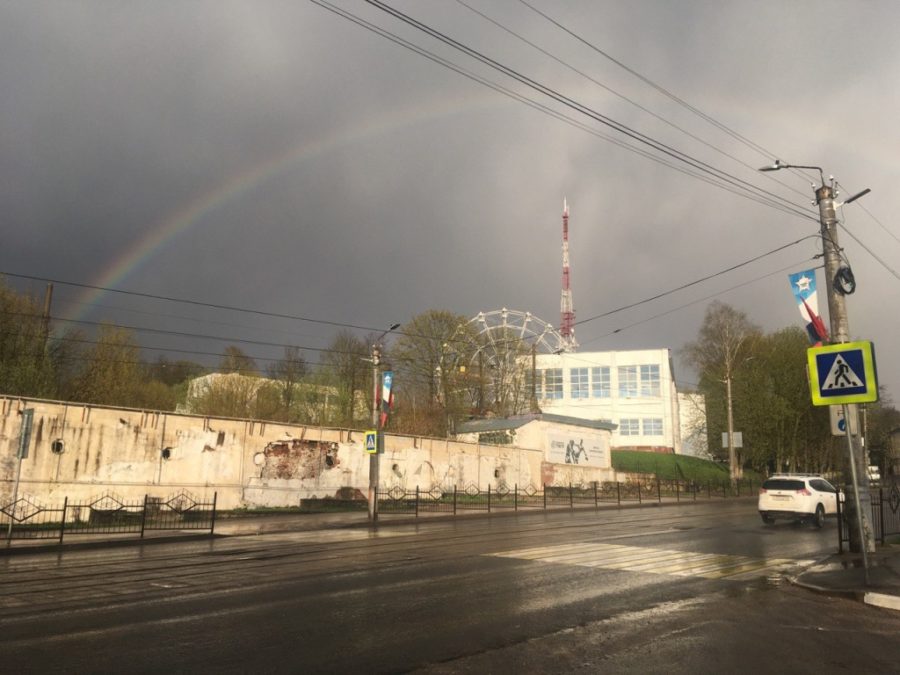
The rainbow arc embraced the bleak world and everything in it. While I was looking for a better angle – the light changed and the rainbow disappeared. But it had been there.
June 22nd, 2021; English version – July 4th, 2021

